Author Archive
Tuesday, August 12th, 2008
By Hank Dudding
Legendary soul music performer Isaac Hayes died this afternoon after he was found unconscious in his Shelby County home.
A family member found the entertainer next to a running treadmill at about 1 p.m. Sunday, said Steve Shular, spokesman for the Shelby County Sheriff’s Office.
Hayes was rushed to Baptist Memorial Hospital, where he was pronounced dead at 2:10 p.m.
Hayes’ wife, their 2-year-old son and another family member had gone to the grocery store around noon, Shular said. When they returned, they found Hayes unresponsive.
Rescue workers responded to a 911 call, and they performed CPR at Hayes’ home at 9280 Riveredge in the eastern part of Shelby County, near Forest Hill and Walnut Grove.
The Sheriff’s Office is conducting a routine investigation, said Shular, but “nothing leads us to believe this is foul play.”
Posted in Uncategorized | Comments Off on Isaac Hayes, Memphis Soul Legend, Dead at 66
Tuesday, August 12th, 2008
By Roger Friedman
My friend, Isaac Hayes, died on Sunday, and his passing leaves many unanswered questions.
The great R&B star, actor, DJ, performer and family man, the composer of “Soul Man,” “Hold On I’m Coming” and other hits by Sam Moore and Dave Prater like “When Something Is Wrong with My Baby,” also was a member of the Church of Scientology.
Isaac was found dead by his treadmill, but conveniently missing from the wire stories was a significant fact: in January 2006, Isaac had a significant stroke. At the time, the word went out only that he had been hospitalized for exhaustion.
But the truth was, Isaac, whom I’d seen just a couple of months earlier when he headlined the Blues Ball in Memphis, was in trouble. Having lost the rights to his songs two decades earlier, he was finally making some money voicing the character of Chef on “South Park.” But “South Park” lampooned Scientology, so the leaders wanted Isaac out.
Push came to shove on Nov. 16, 2005, when “South Park” aired its hilarious “Trapped in the Closet” episode spoofing Tom Cruise and John Travolta. “South Park” creator Matt Stone told me later that Isaac had come to him in tears.
“He said he was under great pressure from Scientology, and if we didn’t stop poking at them, he’d have to leave,” Stone said.
The conversation ended there. Isaac performed Chef’s signature song at the Blues Ball a week later with great delight. Although he was devoted to Scientology, he also loved being part of “South Park.” He was proud of it. And, importantly, it gave him income he badly needed.
But then came the stroke, which was severe. His staff — consisting of Scientology monitors who rarely left him alone — tried to portray it as a minor health issue. It wasn’t. Sources in Memphis told me at the time that Isaac had significant motor control and speech issues. His talking was impaired.
In March 2006, news came that Hayes was resigning from “South Park.” On March 20, 2006, I wrote a column called “Chef’s Quitting Controversy,” explaining that Hayes was in no position to have quit anything due to his stroke. But Scientology issued the statement to the press saying Hayes had resigned, and the press just ate it up. No one spoke to Isaac directly, because he couldn’t literally speak. “Chef” was written out of the show.
Click here to read the March 20, 2006 FOX411.
Isaac’s income stream was severely impaired as a result. Suddenly there were announcements of his touring, and performing. It didn’t seem possible, but word went out that he’d be at BB King’s in New York in January 2007. I went to see him and reported on it here.
The show was an abomination. Isaac was plunked down at a keyboard, where he pretended to front his band. He spoke-sang, and his words were halting. He was not the Isaac Hayes of the past.
What was worse was that he barely knew me. He had appeared in my documentary, “Only the Strong Survive,” released in 2003. We knew each other very well. I was actually surprised that his Scientology minder, Christina Kumi Kimball, with whom I had difficult encounters in the past, let me see him backstage at BB King’s. Our meeting was brief, and Isaac said quietly that he did know me. But the light was out in his eyes, and the situation was worrisome.
But the general consensus was that he needed the money. Without “Chef,” Isaac’s finances were severely curtailed. He had mouths to feed to home.
Plus, Scientology requires huge amounts of money, as former member, actor Jason Beghe, has explained in this space. For Isaac to continue in the sect, he had to come up with funds. Performing was the only way.
In recent months, I’ve had conflicting reports. One mutual friend says that Isaac had looked and sounded much better lately at business meetings. But actor Samuel L. Jackson, who recently filmed scenes with Isaac and the late Bernie Mac for a new movie called “Soul Men,” told me on Saturday that Isaac really wasn’t up to the physical demands of shooting the movie. (Neither, it seems, was Bernie Mac.)
Sam Moore, who recorded those Isaac Hayes songs in the ’60s and loved the writer-performer like a brother, told me Sunday when he heard about the death: “I’m happy.” Happy, I asked? “Yes, happy he’s out of pain.”
It was one of the most beautiful ideas I’d ever heard expressed on the subject of death.
But there are a lot of questions still to be raised about Isaac Hayes’ death. Why, for example, was a stroke survivor on a treadmill by himself? What was his condition? What kind of treatment had he had since the stroke? Members of Scientology are required to sign a form promising they will never seek psychiatric or mental assistance. But stroke rehabilitation involves the help of neurologists and often psychiatrists, not to mention psychotropic drugs — exactly the kind Scientology proselytizes against.
What will come next, I’m afraid, is a wild dogfight among family members for Isaac’s estate. His song catalog (with David Porter) is one of the greatest in music history. Isaac lost the rights to his big hit songs in 1977. But thanks to something called the Songwriters Act, his heirs — whoever they are determined to be — automatically get the rights back as the songs come up for copyright renewal. I guarantee this will not be pretty. Isaac Lee Hayes has over 300 original compositions listed with BMI, from the Sam & Dave songbook to Carla Thomas’ “BABY (Baby)” to his monumental instrumental “Theme from SHAFT.”
None of this should ever take away from who Isaac Hayes really was: a great friend, a warm congenial man with a big heart and a big laugh. He had married again right before his stroke, and was very happy. If he hadn’t had the stroke, I am certain he would have recorded a new album.
There was talk of it after the stroke, but nothing materialized. When we made and promoted “Only the Strong Survive,” he was a masterful musician with a great mind and a wicked sense of humor. His loss at 65 is simply way too early and very tragic.
Posted in Uncategorized | Comments Off on Isaac Hayes’ History With Scientology
Friday, August 1st, 2008
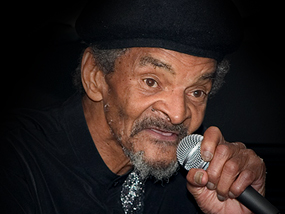 Yusuf Salim (aka Joseph Blair) (1929-July 31st,2008) was born and reared in Baltimore, Maryland. He began his musical career at age 14 as a pianist with the Ken Murray Sextet in Baltimore. Yusuf grew up in west Baltimore near the popular Pennsylvania Avenue in a home near the local musician union hall. His mother, “Miss Eleanor” or “Mama Blair” whom he called “Mother Teresa in Technicolor,” was a kind, fun-loving, music lover who offered her home, good food and piano to union musicians and well-known traveling musicians, who played in his mother’s living room in jam sessions which sometimes would last until dawn. Early on, Yusuf became fascinated by the music and learned his craft from many unsung master musicians. Yusuf Salim (aka Joseph Blair) (1929-July 31st,2008) was born and reared in Baltimore, Maryland. He began his musical career at age 14 as a pianist with the Ken Murray Sextet in Baltimore. Yusuf grew up in west Baltimore near the popular Pennsylvania Avenue in a home near the local musician union hall. His mother, “Miss Eleanor” or “Mama Blair” whom he called “Mother Teresa in Technicolor,” was a kind, fun-loving, music lover who offered her home, good food and piano to union musicians and well-known traveling musicians, who played in his mother’s living room in jam sessions which sometimes would last until dawn. Early on, Yusuf became fascinated by the music and learned his craft from many unsung master musicians.
Salim was hired at age 17 as the house pianist with the nearby world-famous Royal Theater, where he stayed for seven years with a band headed by Tracy McClair, who had played with the Bama Collegians and Erskine Hawkins. While he worked at the Royal Theater, he performed with such greats as Sammy Davis, Jr., Moms Mabley and Redd Foxx. Later, in the late 1940s and the early 1950s, he went to New York City with The Bill Swindell Band and played at the Braddock Bar in Harlem. He participated and witnessed many a jam sessions at the world-famous Minton’s Playhouse in Harlem and Birdland in Manhattan. He met Charlie Parker, Sonny Stitt and many others who would become jazz giants. He left New York City to tour with The Red Prysock Band for 7 years, where he played at The Apollo Theater, Savoy Ballroom, Chicago’s Regal Theater, and recalled hearing about Charlie Parker’s death on an intercom at Pennsylvania Train Station in New York on his way back to Baltimore after doing 90 one-nighters in 1955. Salim said he “grew on the road and the road grew on me.” After the Prysock stint, he spent time in the U.S. Marine Corps, where he played in the Marine Band. Yusuf also participated in many jazz performances while in the service and made life-long musician friends.
After his military service, he moved back to Baltimore and played at the clubs around the city. But jazz had fallen on hard times in Baltimore, so there weren’t many places to play. In 1974. Salim moved to Durham, North Carolina. Later, he hosted a WUNC-TV (PBS) thirteen part series called “Yusuf and Friends.” He also opened a club called The Salaam Cultural Center, which offered workshops, which helped to train and further the careers of North Carolina vocalists Eve Cornelious and Nnenna Freelon, two internationally-known jazz musicians. Yusuf received the North Carolina Arts Council Jazz Fellowship in 1999. He has written over 53 compositions. Some of them have been recorded by Gary Bartz, Mongo Santamaria and Cannonball Adderley. His latest album is titled: Yusuf Sings.
Compiled by Larry Thomas
To check out the slideshow of Yusuf Salim, click here.
To view itinerary for Yusuf Salim’s services, click here.
Posted in Uncategorized | 3 Comments »
Monday, July 28th, 2008
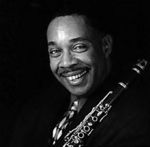 WASHINGTON — Like any musician, New Orleans jazz clarinetist Michael White says he would love to collect royalty checks every time an Internet radio station plays one of his recordings.But not, White said, if the royalty payments force the Internet stations off the air. WASHINGTON — Like any musician, New Orleans jazz clarinetist Michael White says he would love to collect royalty checks every time an Internet radio station plays one of his recordings.But not, White said, if the royalty payments force the Internet stations off the air.
White was in Washington this week for a concert and to lobby members of Congress to intercede and take steps to ensure that Internet radio continues.
White, 53, who recently released his first post-Katrina CD, “Blue Crescent,” said he accepts that few AM or FM stations, even the small number devoted to jazz, will play his songs. But he said he regularly encounters fans at concerts who tell him, ” ‘I found out about you on Internet radio.’ “
“A lot of blues, folk and jazz musicians make most of their money at touring concerts,” White said. “We’re not advocating destroying royalties, but want a royalty system that is fair with comparable media.”
There are currently hundreds of Internet radio stations, some of which cater to fans of music that will never make it on top-40 formats.
At issue is a decision by the Copyright Royalty Board last year to raise Internet royalty rates, calculated as a flat per-song fee for each listener. An association of Internet stations said that the fees would eat away all or most of their earnings.
Some Internet stations ceased operations in anticipation of the higher rates, but others are continuing, buoyed by a decision by SoundExchange, which represents major performers, not to seek immediate payment of the new rates until it engages in negotiations with Internet station owners. SoundExchange said that revenue for Internet stations is often higher than claimed by station owners, an argument disputed by the coalition of Internet station operators.
But White said Congress should step in to allow the Internet to continue to provide the kind of diverse programming not available on conventional or even satellite radio.
It’s been a difficult three years for White, who, like thousands of other New Orleans residents, lost his home during Hurricane Katrina, along with dozens of rare vintage instruments, thousands of recordings, footage of every filmed performance by Louis Armstrong, and his own recorded interviews with jazz greats. Most of the interviews can’t be re-created because the musicians are dead.
White has won support for his efforts from Sens. Ron Wyden, D-Ore., and Sam Brownback, R-Kan. Both say they’ll push their legislation to roll back the royalty increases approved by the royalty board unless negotiations between SoundExchange and Internet stations are successful.
Not only do the stations help a diverse group of musical artists, Brownback said, but they also provide important programming opportunities for many churches and religious groups.
. . . . . . .
Bruce Alpert can be reached at bruce.alpert@newhouse.com or 202.383.7861.
Posted in Uncategorized | 14 Comments »
Friday, July 25th, 2008
The stars came out for this year’s event – and put on a show that proved to be a celebration of the artform, rather than a backslapping showcase July 23, 2008 4:30 PM
As this blog has recorded a few times before, awards ceremonies get a mixed reception from jazzers. At its best, jazz is frequently informal, unpremeditated and uncompetitive – something that seems to run against the spirit of handing out prizes for Best In Show.
This year’s BBC Jazz Awards shindig, held at the Mermaid Theatre at the beginning of this week, would probably have won over all but the most hardcore of dissidents. It made a stronger-than-usual case for the corporation’s public service remit – getting behind a sidelined artform that has nonetheless transformed modern music.
The attempt to confer mainstream respectability on music famous for its ornery tendencies was also present in the high-profile presenters (Jamie Cullum, Jeff Beck, Nigel Kennedy, Beatles guru Sir George Martin, Goldie, Soul II Soul’s Jazzie B, actor/musician Colin Salmon, Mica Paris, Barry Cryer) and the prudent avoidance of sounds with too many overly-disconcerting rough edges. But the performances were otherwise idiomatically varied, heartfelt, and qualified as possibly the best all-round display of jazz’s virtues the BBC Awards have so far seen (in the views of several of the great and good at the after-show bash).
The show went out on Radio 2, and is available to stream via the the iPlayer site until just after midnight on Wednesday July 30. Highlights and discussion about the 2008 Awards will also be presented on Radio 3’s Jazz Line-Up on July 26 from 4.00-5.30pm.
And there certainly were highlights. Perhaps a little more glitz than music-oriented was the most popular and virtuosi version of pianist Chick Corea’s famous fusion band Return To Forever (with bassist Stanley Clarke, guitarist Al DiMeola and drummer Lenny White), which was presented with the Lifetime Achievement Award by Beatles producer George Martin. They briskly rattled their way through Romantic Warrior before departing for the night’s main business, a concert at the 02 Arena.
Surely, no coincidence in the synchronicity of dates with the London leg of the band’s 2008 Reunion Tour?
But if Corea’s group was understandably in a hurry, everybody else stuck around to enjoy a rare chance to swap compliments and not a few good musical ideas – not least those two unstoppable 80 year-olds Dame Cleo Laine and Sir John Dankworth; Gold Award winners who got a standing ovation for the vivacity of their performance with Guy Barker’s powerful specially-assembled big band at the finale.
Singer Ian Shaw delivered a haunting first public performance of Humphrey Lyttleton’s Sad, Sweet Song (Humph, posthumous winner of the BBC Radio 2 Jazz Artist Of The Year prize, apparently sent it to the singer not long before he died), and Jamie Cullum, Jeff Beck and Clint’s bass-playing son Kyle Eastwood jammed on Let The Good Times Roll – a tribute to octogenarian Candid Records boss Alan Bates, who won Services To Jazz In The UK.
Scottish saxophonist Tommy Smith played some of the most dramatic and powerful Coltrane-tradition tenor-sax of the night, after winning the BBC Radio 2 Heart Of Jazz award – dedicating it to all the places in the world where uptight regimes still view music-making as dangerous.
Acoustic Ladyland pianist Tom Cawley’s Curios trio took the Radio 3 Jazz Line-Up Best Band Award, and Jazz On 3’s Innovation Award went to that stylistically jump-cutting band Fraud – though its saxophonist James Allsop put his finger on the event’s nervousness about the sharp end by saying he was “embarrassed to win this category in a list that includes Evan Parker, one of the most innovative musicians ever to pick up the saxophone”.
Link to article.
Posted in Music News | Comments Off on BBC Jazz Awards 2008: A Winning Shindig
Friday, July 25th, 2008
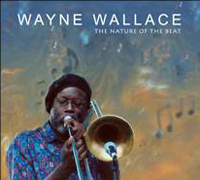 Check here weekly for the WNCU Staff Jazz Pick of the Week. This week’s pick is Wayne Wallace. Tune into WNCU 90.7 FM this week to hear featured selections from his CD, The Nature of the Beat. Learn more about Wayne Wallace at http://www.walacomusic.com/home.html Check here weekly for the WNCU Staff Jazz Pick of the Week. This week’s pick is Wayne Wallace. Tune into WNCU 90.7 FM this week to hear featured selections from his CD, The Nature of the Beat. Learn more about Wayne Wallace at http://www.walacomusic.com/home.html
Posted in Staff of the Week | 4 Comments »
Wednesday, July 9th, 2008
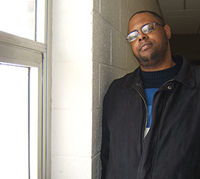 DURHAM, N.C. – WNCU 90.7 FM and North Carolina Central University’s Alumni Affairs office have developed a new partnership to connect with NCCU graduates. Beginning Saturday, July 12, 2008, at 10:30 a.m., WNCU will air the first installment of NCCU Alumni Today, a new talk show. The show will offer graduates information about what¹s happening on campus and in the lives of their fellow Eagles.Truitt O’Neal hosts the show. He is a 2001 graduate of NCCU with his bachelor’s degree in English and a concentration in electronic media. He is the former general manager of Audionet, NCCU’s student radio station. He also worked as a student staff member for WNCU. Currently, O’Neal is the news and public affairs director for WNNL The Light 103.9 FM and the Raleigh affiliate producer of the Yolanda Adams Morning Show. DURHAM, N.C. – WNCU 90.7 FM and North Carolina Central University’s Alumni Affairs office have developed a new partnership to connect with NCCU graduates. Beginning Saturday, July 12, 2008, at 10:30 a.m., WNCU will air the first installment of NCCU Alumni Today, a new talk show. The show will offer graduates information about what¹s happening on campus and in the lives of their fellow Eagles.Truitt O’Neal hosts the show. He is a 2001 graduate of NCCU with his bachelor’s degree in English and a concentration in electronic media. He is the former general manager of Audionet, NCCU’s student radio station. He also worked as a student staff member for WNCU. Currently, O’Neal is the news and public affairs director for WNNL The Light 103.9 FM and the Raleigh affiliate producer of the Yolanda Adams Morning Show.
“I am enthusiastic about returning to WNCU to produce NCCU Alumni Today,” said O’Neal. “Over the upcoming weeks I look forward to talking with NCCU alumni from all walks of life across the country and around the world.”
Norma Petway, a 1977 graduate of NCCU and director of Alumni Relations, says the mission of NCCU Alumni Today as an extension of the mission of her office. According to Petway, the show “will update graduates on activities at NCCU and give information on how they can participate in university activities and contribute financially. The goal is to encourage every graduate to become an active Eagle.”
Since its debut in August 1995, WNCU, 90.7 FM, licensed to North Carolina Central University, has consistently fulfilled its mission to provide quality, culturally-appropriate programming to public radio listeners in the Triangle area. The format of this listener supported public radio station entertains the jazz aficionado, educates the novice jazz listener and disseminates news and information relative to the community-at-large. WNCU 90.7 FM is a 50,000 watt public radio station and an affiliate of NPR, PRI and Pacifica Radio.
Posted in Uncategorized | 6 Comments »
Saturday, July 5th, 2008
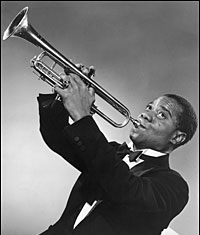 He is the most important jazz musician of all time, and even that’s an understatement. Louis Armstrong defined American popular culture in the 20th century as a musician and an entertainer. As a singer and trumpeter, he taught the world to swing…from NPR He is the most important jazz musician of all time, and even that’s an understatement. Louis Armstrong defined American popular culture in the 20th century as a musician and an entertainer. As a singer and trumpeter, he taught the world to swing…from NPR
Celebrate the 4th of July with Louis Armstrong and WNCU. It is our annual tribute to the undisputed master of swing. All day during the jazz programming, Louis Armstrong will get heavy rotation. From his early days with the hot 5’s and 7’S all the way to Hello Dolly, WNCU will broadcast the best of Louis.
So get ready to tap your feet, snap your fingers and sing along with your favorites!
Tune in at noon on the 4th for a special Jazz Profiles program, Louis Armstrong, the Trumpeter.
Posted in Uncategorized | 9 Comments »
Thursday, July 3rd, 2008
 Durham, N.C. – Kitty Kinnin, a fixture in Triangle radio for almost two decades, returns to the airwaves to host a new blues show, “Tell Mama – Saturday Night Blues” on WNCU, 90.7 FM. Durham, N.C. – Kitty Kinnin, a fixture in Triangle radio for almost two decades, returns to the airwaves to host a new blues show, “Tell Mama – Saturday Night Blues” on WNCU, 90.7 FM.
Kinnin joins the station after four years in Wilmington, N.C., hosting a local TV show on WWAY TV3 and narrating the documentary, “Diversity, Part 1” for Step Up Wilmington. Kinnin also managed the marketing and public relations campaign for the new luxury condo development downtown, The View on Water Street. Edith Thorpe, general manager of WNCU says, “Kitty is a seasoned radio professional and we are elated that she has joined our team.”
Kinnin admits, “I’m back where I belong – in the Triangle and in front of a mic playing the music.” Although she spent her entire Triangle career in commercial radio—12 years on WRDU as midday personality and host of Sunday Jazz Brunch, four years doing the same on FOXY 107/104 and briefly, at Curtis Media—Kinnin looks forward to the challenge of public radio.
“At WNCU, 90.7, they are all about the music and that’s rarely found in local commercial radio,” said Kinnin. “I’ve always had a passion for jazz and the blues, so this is a perfect fit for me.” Saturday nights on WNCU are dedicated to the blues. From its roots in the field hollers, work songs and church choirs, from Africa to the Mississippi Delta, Beale Street to the Streets of Chicago and to our own Piedmont, Kitty will put together her own special mix during “Tell Mama – Saturday Night Blues.” The show debuts Saturday night, July 5, at 8 p.m., on WNCU 90.7 FM.
Posted in Uncategorized | Comments Off on WNCU, 90.7 FM Partners with Kitty Kinnin for a New LIVE Blues Show
Tuesday, July 1st, 2008
The great pianist Ahmad Jamal will be receiving this year’s Donostiako Jazzaldia Award. Starting in 1994, the San Sebastian Jazz Festival has given this award to an outstanding musician for his lifetime career and his contribution to jazz.Ahmad Jamal is unique. Alter being considered one of the greatest musicians by his colleagues, Miles Davis among them, he now lives a splendid maturity assuring him a position among the most important names in jazz. He revolutionized jazz piano in the 50s thanks to his subtlety under the simplicity of his music, and has been a major influence for all piano players since then. In his recent recordings, specially those together with George Coleman, the richness of his musical universe and his permanent vitality are always present. His career has been recognized with several important awards such as the Knighthood of Arts and Letters of France (Chevalier des Arts et des Lettres) and the American Jazz Masters Award.
*Award winners since 1994*
Doc Cheatham (1994)
Phil Woods (1995)
Hank Jones (1996)
Steve Lacy (1997)
Chick Corea (1998)
Max Roach and Clark Terry (1999)
Kenny Barron (2000)
Ray Brown (2001)
Elvin Jones (2002)
Bebo Valdés (2003)
Shirley Horn and Fernando Trueba (2004)
Keith Jarrett and Charles Mingus (In Memoriam) (2005)
Herbie Hancock (2006)
Wayne Shorter (2007)
Posted in Uncategorized | 7 Comments »
|


 Yusuf Salim (aka Joseph Blair) (1929-July 31st,2008) was born and reared in Baltimore, Maryland. He began his musical career at age 14 as a pianist with the Ken Murray Sextet in Baltimore. Yusuf grew up in west Baltimore near the popular Pennsylvania Avenue in a home near the local musician union hall. His mother, “Miss Eleanor” or “Mama Blair” whom he called “Mother Teresa in Technicolor,” was a kind, fun-loving, music lover who offered her home, good food and piano to union musicians and well-known traveling musicians, who played in his mother’s living room in jam sessions which sometimes would last until dawn. Early on, Yusuf became fascinated by the music and learned his craft from many unsung master musicians.
Yusuf Salim (aka Joseph Blair) (1929-July 31st,2008) was born and reared in Baltimore, Maryland. He began his musical career at age 14 as a pianist with the Ken Murray Sextet in Baltimore. Yusuf grew up in west Baltimore near the popular Pennsylvania Avenue in a home near the local musician union hall. His mother, “Miss Eleanor” or “Mama Blair” whom he called “Mother Teresa in Technicolor,” was a kind, fun-loving, music lover who offered her home, good food and piano to union musicians and well-known traveling musicians, who played in his mother’s living room in jam sessions which sometimes would last until dawn. Early on, Yusuf became fascinated by the music and learned his craft from many unsung master musicians. WASHINGTON — Like any musician, New Orleans jazz clarinetist Michael White says he would love to collect royalty checks every time an Internet radio station plays one of his recordings.But not, White said, if the royalty payments force the Internet stations off the air.
WASHINGTON — Like any musician, New Orleans jazz clarinetist Michael White says he would love to collect royalty checks every time an Internet radio station plays one of his recordings.But not, White said, if the royalty payments force the Internet stations off the air. Check here weekly for the WNCU Staff Jazz Pick of the Week. This week’s pick is Wayne Wallace. Tune into WNCU 90.7 FM this week to hear featured selections from his CD, The Nature of the Beat. Learn more about Wayne Wallace at
Check here weekly for the WNCU Staff Jazz Pick of the Week. This week’s pick is Wayne Wallace. Tune into WNCU 90.7 FM this week to hear featured selections from his CD, The Nature of the Beat. Learn more about Wayne Wallace at  DURHAM, N.C. – WNCU 90.7 FM and North Carolina Central University’s Alumni Affairs office have developed a new partnership to connect with NCCU graduates. Beginning Saturday, July 12, 2008, at 10:30 a.m., WNCU will air the first installment of NCCU Alumni Today, a new talk show. The show will offer graduates information about what¹s happening on campus and in the lives of their fellow Eagles.Truitt O’Neal hosts the show. He is a 2001 graduate of NCCU with his bachelor’s degree in English and a concentration in electronic media. He is the former general manager of Audionet, NCCU’s student radio station. He also worked as a student staff member for WNCU. Currently, O’Neal is the news and public affairs director for WNNL The Light 103.9 FM and the Raleigh affiliate producer of the Yolanda Adams Morning Show.
DURHAM, N.C. – WNCU 90.7 FM and North Carolina Central University’s Alumni Affairs office have developed a new partnership to connect with NCCU graduates. Beginning Saturday, July 12, 2008, at 10:30 a.m., WNCU will air the first installment of NCCU Alumni Today, a new talk show. The show will offer graduates information about what¹s happening on campus and in the lives of their fellow Eagles.Truitt O’Neal hosts the show. He is a 2001 graduate of NCCU with his bachelor’s degree in English and a concentration in electronic media. He is the former general manager of Audionet, NCCU’s student radio station. He also worked as a student staff member for WNCU. Currently, O’Neal is the news and public affairs director for WNNL The Light 103.9 FM and the Raleigh affiliate producer of the Yolanda Adams Morning Show. He is the most important jazz musician of all time, and even that’s an understatement. Louis Armstrong defined American popular culture in the 20th century as a musician and an entertainer. As a singer and trumpeter, he taught the world to swing…from NPR
He is the most important jazz musician of all time, and even that’s an understatement. Louis Armstrong defined American popular culture in the 20th century as a musician and an entertainer. As a singer and trumpeter, he taught the world to swing…from NPR Durham, N.C. – Kitty Kinnin, a fixture in Triangle radio for almost two decades, returns to the airwaves to host a new blues show, “Tell Mama – Saturday Night Blues” on WNCU, 90.7 FM.
Durham, N.C. – Kitty Kinnin, a fixture in Triangle radio for almost two decades, returns to the airwaves to host a new blues show, “Tell Mama – Saturday Night Blues” on WNCU, 90.7 FM.